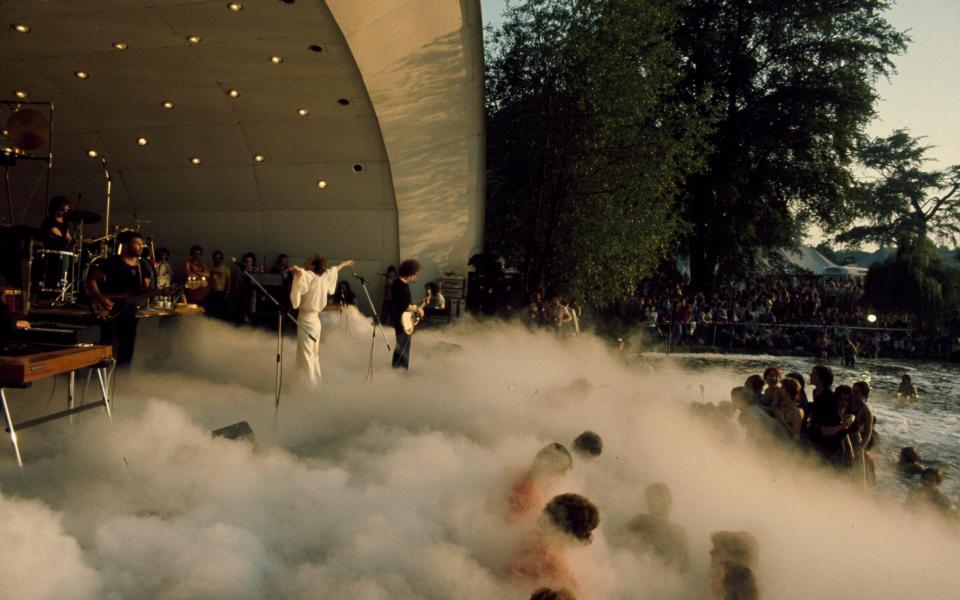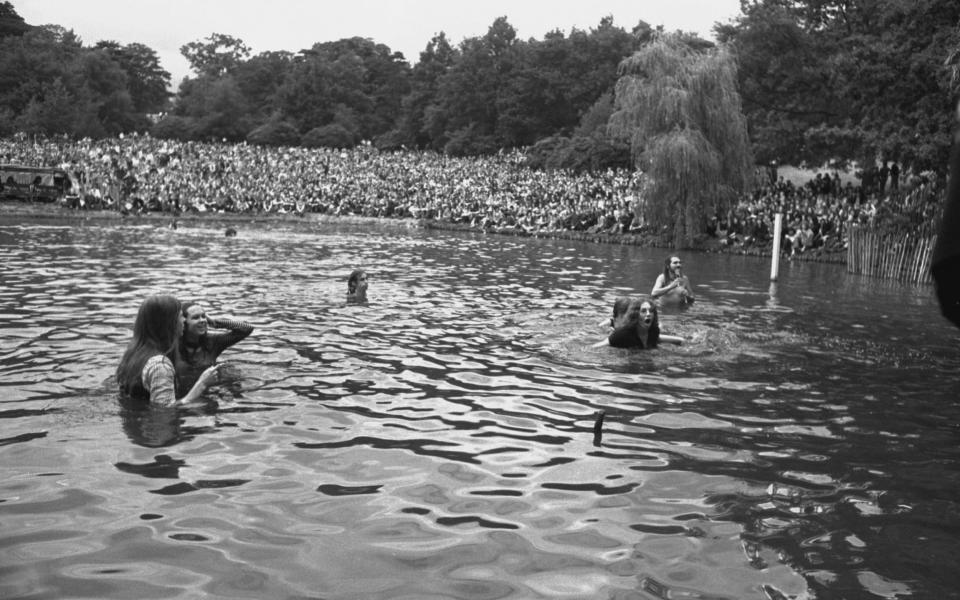From Pink Floyd to Bob Marley: the crazy history – and 2021 rebirth – of a brilliant rock venue

After years of silence, one of Britain’s greatest music venues will rock again this summer. A new annual festival is to launch this August at the Crystal Palace Bowl, the beautiful lakeside space that in its heyday hosted everyone from Pink Floyd to the Pixies, before falling into disuse.
“It’s a legendary space, and it seems such a waste to not use it,” South Facing festival programmer Keith Miller told The Telegraph. “It’s a natural amphitheatre. Some of the greatest acts of all time have played there – it’s like a sleeping giant.”
From 1970 onwards, this corner of South London’s Crystal Palace Park held the annual Garden Party, a raucous summer festival once dubbed the “hippy-rock Glyndebourne”. Elvis Costello, Eric Clapton, Elton John, The Beach Boys and Rod Stewart all made appearances, while the now-derelict venue boasts a blue plaque celebrating it as the location of Bob Marley’s largest ever UK show, in 1980, just a few months before his death.
When The Who’s Keith Moon hosted the Garden Party in 1972, he offered his own unique spin on the picnic theme. Dressed as a pirate, the maverick drummer served tea and cake to the crowd from a rowing boat in the lake. (This was far from his only stunt: Moon had first arrived at the stage by scooting across the lake via hovercraft, after landing in the park in a helicopter.)
The lake should theoretically have offered a natural barrier to crowds, but it wasn’t enough to keep back Lou Reed’s fans – who dived into the water en masse in 1973 to get closer to the star. The Bowl became a site of controversy in 1981 when it held a one-day festival called It’s Only Rock’n’Royal, scheduled to clash with the wedding of Prince Charles and Princess Diana.

When Yes’s Rick Wakeman staged his high-concept prog-rock Journey to the Centre of the Earth there in 1974, giant Godzilla-like inflatable monsters hidden in the lake were meant to emerge from its murky depths to “fight” each other – accompanied by the strains of a 50-piece symphony orchestra. In a farcical mishap, the inflatables got stuck halfway, blocking the band from view. (He should have learnt from Pink Floyd, who had similar troubles at the Bowl in 1971, when paddling prog-fans got tangled up in the tentacles of their inflatable octopus.)
But the strangest event in the venue’s history might be an anti-heroin concert in 1985, where Motorhead’s Lemmy and Hawkwind – together with their topless go-go dancer, Stacia – performed as the opening act for Vera Lynn. Sadly, Dame Vera’s thoughts on the gig went unrecorded.
The first shows on the new 2021 festival’s line-up, announced today, include Dizzee Rascal (Aug 14), Supergrass (Aug 20) and The Streets (Aug 21-22). But there will also be a full performance of English National Opera’s Tosca – with star soprano Natalya Romaniw – and an appearance from composer Max Richter. The mix of classical and pop is a nod to the park’s history, says Miller: for almost a decade after the Bowl opened in 1961, it was almost exclusively a classical music venue.

Ironically, the stage built in 1961 was only ever intended to be a temporary structure, but it stayed in regular use far longer than the permanent stage that replaced it in 1996 – and has barely been used since a financially unsuccessful 2002 concert season. Nicknamed the “rusty laptop” by locals for its shape and pre-rusted steel facade, that RIBA-nominated structure is now in a sad state of disrepair.
For the South Facing festival, a temporary platform will be put in place to cover the stage and lake, but there are also plans afoot for a permanent restoration. A crowdfunding page to repair the Bowl, launched just last month, has already raised more than £35,000. A full restoration would be a boon to the UK beleaguered live music scene, after a year of lockdown. It’s high time the rusty laptop was rebooted.

